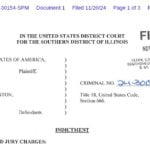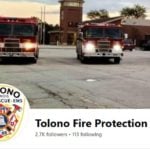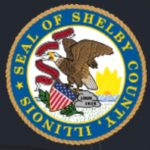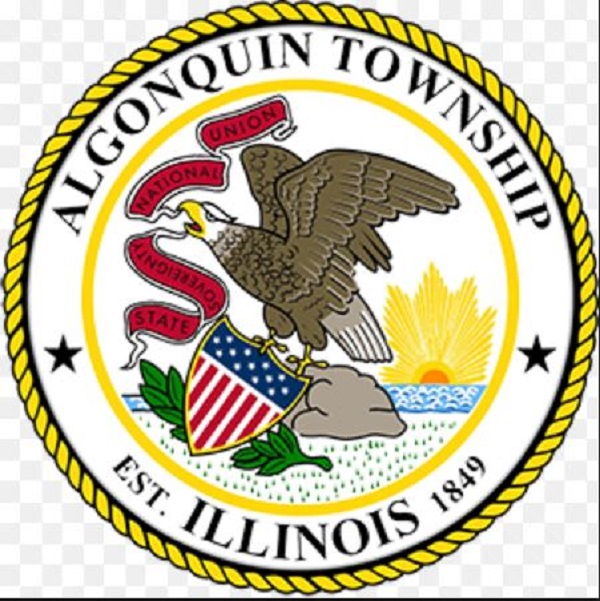McHenry Co. (ECWd) –
To grasp the impact of Bob Miller’s actions prior to leaving office, we urge everyone to read Part I.
As outlined in Part II, this final article will address the three questions raised.
- Upon knowledge of a CBA, why not bring the employees back and go through the process outlined in the CBA?
- Everyone knows the CBA was being challenged but why?
- Was it proper for Gasser to question the validity of the CBA?
Considering Miller either failed to or refused to provide any documentation to support any of the steps taken to unionize, the indications were they were not. If they were not, is that not grounds to question the validity of the CBA?
We believe there is plenty of reasons to question and challenge the CBA and will outline a few of these below.
As far as bringing the employees back, while it sounds simple, such an action could tank the entire process of challenging the CBA. In this case, there were plenty of reasons to believe the CBA was not valid. If the position is you do not believe it is valid, bringing those employees back provides an acknowledgment of validity, which only helps to hurt a challenge of the CBA.
All that aside, there is language in the CBA which when reading plainly, points to a restriction that raises concerns worthy of a challenge in our opinion. While the intent of that language can be assumed, the plain reading of that language is very problematic.
“The District cannot dispose of existing equipment and materials which would prevent the employees from performing work that of the execution of this contract, they are able to perform.”
The agreement, now determined to be valid by the courts, clearly imposes restrictions on the Office of Highway Commissioner which conflict with his statutory powers found in the Highway Code. Such a conflict, in our eyes, was worthy of a challenge, all employee issues aside.
Another worthy challenge is on the Open Meetings Act obligations for a Public Body as it relates to conducting all actions in an open meeting. The plain reading of the language in the Open Meetings Act requires all actions of public bodies to be done in public, not in the dark of night as was done with the CBA.
(e) Final action. No final action may be taken at a closed meeting. Final action shall be preceded by a public recital of the nature of the matter being considered and other information that will inform the public of the business being conducted.
Not only was there no public recital, but there was also zero information provided that informed the public of the business Miller was conducting, let alone informing the newly elected official as to what he had done.
Ironically, the transcript reflects the Lake County judge does not consider a Road District a public body subject to OMA, even though the Local 150 Union said they are a public body. The judge’s own words reflect he misquoted the definition of Public Body and we know he was wrong as even the Appellate Court confirmed a Road District is in fact a public body.
Judges claimed definition of Public Body:
“Just looking at the definition of 5 ILCS 120/1, which defines public body encompasses boards, bureaus, committees, commissions, subsidiary bodies including committees and subcommittees, that all seem to include or encompass meetings by decision-makers or advisory groups that include more than one member. And again the goal is that with the Open Meetings Act is that these decisions that are made by multiple members, decision-making bodies are going to be done in public and not behind the scenes.
So in just reading the statute, it would not appear that the highway commissioner, who is a sole official with certain statutory authorities, would have to conduct — would have to approve contracts and approve everything in an open meeting, since he is not a body, a committee, a board, or a subcommittee. “
What the judge missed was the proper citation and the fact in that definition of Public Body it outlines what is NOT a public body and it should be noted that it does not say a Road District is not a public body. Of interest is the fact it does not say they are, just as other Districts are not named such as a Park District, Library District, etc. The latter point was raised in proposed legislation to clarify the original intent of OMA, which was all units of government are considered a public body with the exceptions of those listed in the definition and the Appellate court said as much in this very case.
5 ILCS 120/1.02 “Public body” – includes all legislative, executive, administrative or advisory bodies of the State, counties, townships, cities, villages, incorporated towns, school districts and all other municipal corporations, boards, bureaus, committees or commissions of this State, and any subsidiary bodies of any of the foregoing including but not limited to committees and subcommittees which are supported in whole or in part by tax revenue, or which expend tax revenue, except the General Assembly and committees or commissions thereof. “Public body” includes tourism boards and convention or civic center boards located in counties that are contiguous to the Mississippi River with populations of more than 250,000 but less than 300,000. “Public body” includes the Health Facilities and Services Review Board. “Public body” does not include a child death review team or the Illinois Child Death Review Teams Executive Council established under the Child Death Review Team Act, an ethics commission acting under the State Officials and Employees Ethics Act, a regional youth advisory board or the Statewide Youth Advisory Board established under the Department of Children and Family Services Statewide Youth Advisory Board Act, or the Illinois Independent Tax Tribunal.
What does it matter?
As the newly elected official, Gasser believed the action taken by his predecessor was a detriment to the Road District and the taxpayers to the tune of millions of dollars for years to come. Looking at the long term picture, he believed any steps that can be taken to reverse that action was a worthy cause according to him. We understand many agree and many don’t. Either way, as the elected official it was his choice to make and as the courts have said for years, elected officials’ actions are why we have elections. When people support the action those officials tend to stay in office. When they don’t, they tend to be voted out.
While many are screaming about the legal costs, few realize the legal bills were not just tied to termination of employees but rather the basic application of the law as it relates to transparency. We know the Open Meetings Act applies to the Highway Commissioner because it mandates he take the training. If that portion of the law applies to him for training it is logical to believe so too does the rest of the law. All indications pointed to an OMA violation for the taking of action in secret and Gasser fought the case on that point and others. To our amazement, the courts have basically ruled that OMA does not apply when it comes to transparency and decisions by highway commissioners. That ruling will impact the taxpayers of Road Districts for years to come and at a cost we suspect will make the legal bills trivial, as pointed out in this article.
While there is plenty of cost analysis yet to be done to see what has been spent versus saved by Gasser’s actions, the one expense that is sure to face the taxpayers for many years beyond Gasser’s short time in office is the teeth and expense of a union contract in the public sector. A contract signed in the dark of the night by an elected official who lost at the ballot box, all done just days before the people’s choice took office.
While not all-inclusive, the above should be kept in perspective by those determined to cast blame on any one person.
Agree or disagree, Gasser’s actions have awoken the entire state on problems with the Township Road District laws and many are taking steps to rectify many of those shortcomings, both internally and legislatively.
.
Our work is funded entirely thru donations and we
ask that you consider donating at the below link.









No Comments
Sorry, the comment form is closed at this time.